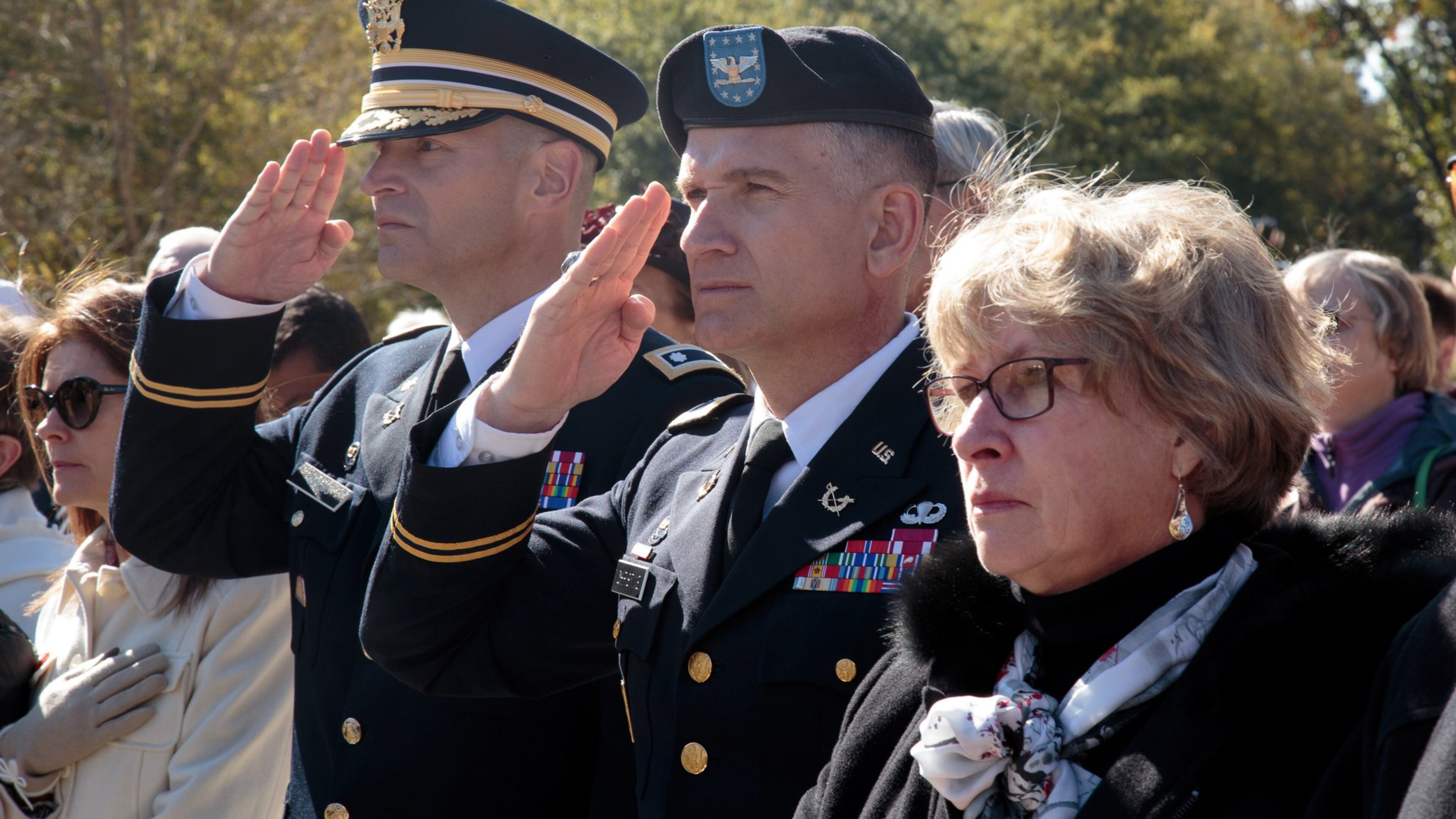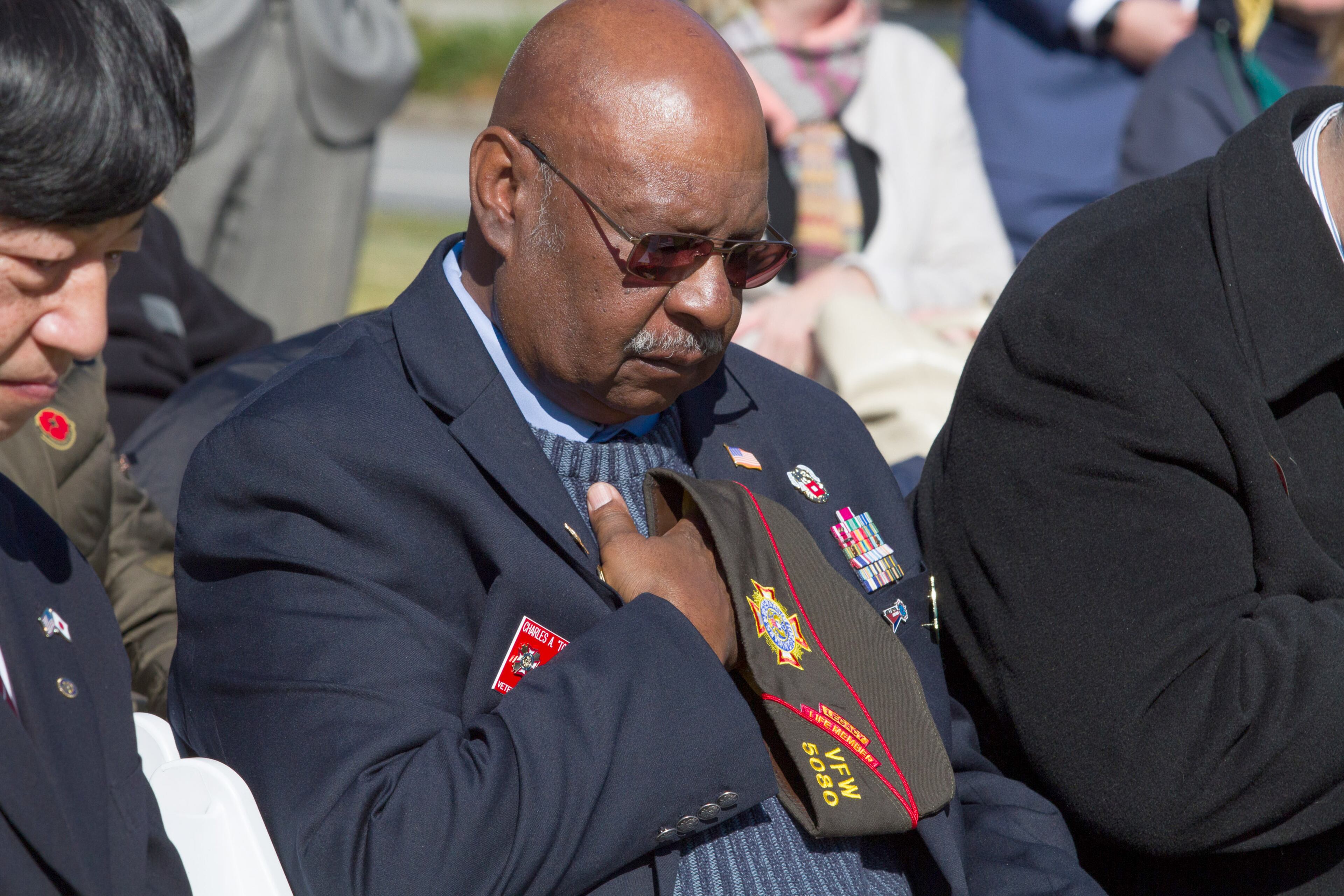Day to honor veterans also marks 100th anniversary of World War I’s end

More than 100 veterans, including a Medal of Honor winner, turned out Sunday at the Atlanta History Center for a special Veterans Day observance that marked the 100th anniversary of the end of World War I.
On a cool, clear morning, veterans who served in Korea, Vietnam, Iraq and Afghanistan gathered with others outside the center for a ceremony that included the sounds of both a military band and a lone bagpiper as well as speakers who sought to assess the conflict’s place in history.
The ceremony also featured an appearance by retired Marine Corps Maj. Gen. James E. Livingston, one of the 74 living Medal of Honor recipients. Livingston, 78, and his wife, Sarah, occupied seats in the center of the front row and were greeted afterward by many of the other vets in attendance.

Often referred to as “the Great War” or “the war to end all wars,” World War I killed 10 million combatants, involved 32 countries in fighting in various parts of the globe. Yet its significance and horrors have been overtaken by more recent events, a theme that those who spoke Sunday wove into their remarks.
Sheffield Hale, the history center's president and CEO, described how the war ended a century ago in France's Compiegne Forest "on a day about 15 degrees colder and much mistier than today." However, since that time, it has "sometimes been lost in our collective memory," he said.
He added that, while thousands of Georgians died in the war, “we are missing many of their stories.”

Keynote speaker Billy Wells, a retired Army colonel, noted that World War I ushered in an era of warfare that included powerful artillery, tanks and air power. But the reparations demanded of Germany left the country in dire economic straits and promoted the rise of nationalism - the prelude to World War II.
“There is no such thing as a `war to end all wars’ … and equally there’s no such thing as a `great war,’” said Wells, senior vice president for leadership and global engagement at the University of North Georgia.

In an interview after the ceremony, Livingston, who grew up in Lumber City and now lives in Charleston, S.C., also spoke of how World War I led to innovations in weaponry but was misunderstood as an end game for human conflict.
“They said that would be the last war, and look where we’re at today,” he said.
Livingston, who served three tours in Vietnam and was awarded the Medal of Honor for service beyond the call of duty at the battle of Dai Do, said remembering those who served in World War I reminded him of the “legacy” that passes from one generation of soldiers to another and his belief that more people should serve the country.
“I’d like to see more sacrifice in some fashion,” he said. “More (people) should be giving back to our country.”
The ceremony began with the ringing of “peace bells” to mark the timing of the armistice - the 11th hour on the 11th day of the 11th month.

Wayne Coleman of Stone Mountain then played a medley of military tunes on his bagpipe, including “Over There,” the patriotic song written by George M. Cohan that became popular during the war.

Coleman, who plays the same bagpipes his father played as a soldier during World War II, later closed the ceremony with another medley that also included “Over There.”
RELATED: Atlanta Veterans Day Parade gallery
RELATED: Cox honors veterans | gallery


